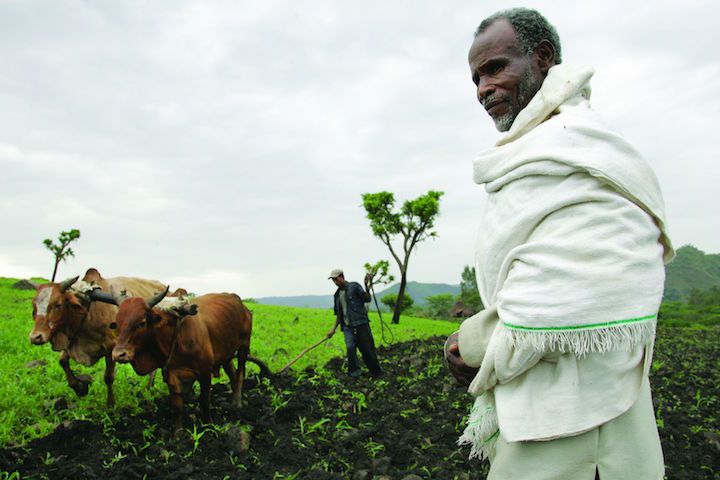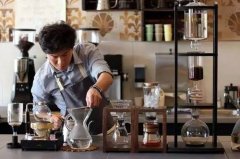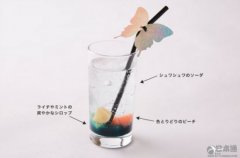Introduction to the History of planting and Development of Maraka Dula Coffee varieties in Nicaragua

Professional barista communication, please pay attention to coffee workshop (Weixin Official Accounts cafe_style )
Nicaragua Monte Cristo Manor Nicaragua Finca Cerro de Jesus
Nicaragua borders Honduras in the north in the Cordillera Dipilto Mountains. Monte Cristo Estate is located at the highest peak of this mountain range. It covers an area of 280 hectares, of which 126 hectares are used to grow coffee. It is not only a coffee planting area but also a protected natural mountain forest. It is rich in wild ecological environment. It combines natural advantages such as high altitude, rainfall and mineral-rich soil, and provides ideal coffee growing environment with shade tree planting method.
When the farm begins harvesting, they use a sugar refractometer to select the coffee fruit to be processed, a process that determines which blocks of green beans in the farm can be made into microbatches: the ideal value is about 22%. When the ripeness reaches the desired level, the green beans are selected according to the treatment to be performed (sun, red honey, yellow honey, etc.).
Monte Cristo Manor, in addition to Kadura, Bourbon, Pakamara and other varieties have been popular in the world, but also bred new varieties of coffee world: ethiosarch and maragaturra. Well-grown maragaturra not only has rich fruit flavor, elegant acid, but also has amazing performance in aroma and sweetness.
Monte Cristo Isosarch Monte Cristo Manor Microlot Isosarch Variety Washed Finca Cerro de Jesus Microlot Ethiosch Washed
:: Country: Nicaragua
■ Origin: Harappa
■ Altitude: 1100-1450 m
■ Treatment method: washing
■ Grade: SHG
■ Breed: Isosaki
■ Flavor description: Citrus, lemon, fruit juice, sugar
Monte Cristo Falls Maracaduge Monte Cristo Manor Falls Block Microlot Maracadura Variety Sunlight Finca Cerro de Jesus Plot La Cascada Microlot Maragaturra Natural
:: Country: Nicaragua
■ Origin: Harappa
■ Altitude: 1100-1450 m
■ Treatment method: sun exposure
■ Grade: SHG
■ Breed: Malakadura
■ Flavor description: apricot, orange, spice, herb, tropical fruit
Maracaturra: Why does CoE's award-winning estate grow hybrids?
Author: A. K. Molina
Special thanks to Mauricio Salaverria for guiding and introducing the Micro Coffee Festival in El Salvador
Perfect Daily Grind
Maracaturra: A hybrid variety, Maragogype and Caturra, common in Nicaragua.
But this variety is grown in El Salvador's Apaneca, a coffee estate that has won the Cup of Excellence twice-Finca Himalaya. We interviewed Mauricio Salaverria, founder of Divisadero Coffees, which has won other estates more than two Cup of Excellence.
We talked while he was working as an international guide for El Micro Coffee Festival. He explained why he believed that growing maracadura would result in higher quality and yield coffee.
Bourbon, Pacas, Pacamara: coffee varieties of El Salvador
Malacadura is very rare in El Salvador. Bourbon, Pacas and Pacamara accounted for 83% of total coffee production. (Based on Consejo Salvadoreño del Café)
All three varieties are capable of creating excellent flavors. World Coffee Research (WCR) rated them as "very good,""good," and "very promising at high altitudes." However, they are susceptible to leaf rust and coffee berry disease. El Salvador and other Central American countries were strongly affected by leaf rust in 2012.
Like Maracaturra, Pacamara is a hybrid of Maragogype-a variant of Maragogype mixed with Pacas, not the high-yield Caturra. The non-profit organization Fundación para el Desarrollo Socioeconómico y Restauración Ambiental (FUNDESYRAM) reports that the average yield of Pacamara in El Salvador is 18 quintals per 1 to 2 acres. Pacas are 24 to 70 quintals per 1 to 2 acres, Bourbon is 25 to 55 quintals per 1 to 2 acres.
Breaking with tradition: why Maracaturra? Mauricio currently grows elephant beans, orange bourbon, and pacamara. Even though his coffee now has excellent flavor, he is still trying to find ways to improve.
Mauricio spoke to Manuel Meza, then director of research at The Salvadoran Foundation for Coffee Research (Procafé), who told him that he had met Maracaturra in Matagalpa, Nicaragua, and that he had won the top five places in the Cup of Excellence many times.
Manuel Meza was happy to help Mauricio, so he brought Maracaturra seeds for Mauricio to plant.
What is special about Maracaturra?
Like Maragogype, Maracaturra coffee beans come in large sizes. Mauricio told me that he inherited the excellent flavor and high yield of Caturra. Its short stature and abundant foliage act as a barrier to strong winds-useful on Mauricio's often windy estates.
Unfortunately, this variety is susceptible to leaf rust and therefore requires a high degree of care. Its flavor is tropical fruit with bright acidity. It finished fifth at the 2015 Cup of Excellence, and Mauricio believes it will outperform Pacamara in future harvests. In the future Mauricio plans to treat Maracaturra coffee cherries with semi-washing, honey treatment and sun treatment. By doing so, he could find the best way to deal with it. He uses African beds, which stabilize the circulation of air and make the drying process more even.
Every coffee plantation, every coffee variety, long-term illumination, experimentation, and observation are necessary to make good coffee. Mauricio is confident in Maracaturra's potential.
Maracaturra is a promising breed for Mauricio, which strives to improve coffee quality. It gives him more options to offer to his guests. He was encouraged to find that visitors from France, Australia and Canada welcomed the breed.
Nicaragua borders Honduras to the north in the Cordillera Dipilto Mountains.
Monte Cristo is situated on the highest peak of this range, covering an area of 280 hectares,
Of this, 126 hectares are devoted to coffee cultivation,
It's not just coffee growing, it's protected nature.
Rich wildlife,
It combines the natural advantages of high altitude, rainfall and mineral-rich soil to
The planting method of shade trees provides ideal coffee growing environment.
When the estate begins harvesting,
They use a sugar refractometer to pick the coffee berries to be processed,
Such a procedure is to determine which blocks of raw beans in the estate can be made into microbatches:
The ideal value is around 22%.
When maturity reached ideal value,
The green beans are then screened for the treatment they will undergo (sun, red honey, yellow honey, etc.).
Monte Cristo estate, in addition to Cadura, Bourbon, Pakamara and other varieties have been popular in the world,
It also spawned new varieties of coffee:
ethiosarch and maragaturra,
grown
Elegant acidity, its aroma and sweetness have amazing performance.
Important Notice :
前街咖啡 FrontStreet Coffee has moved to new addredd:
FrontStreet Coffee Address: 315,Donghua East Road,GuangZhou
Tel:020 38364473
- Prev

Hawaii Kona Kona Coffee introduces flavor description variety classification
Exchange of professional baristas Please pay attention to the most expensive coffee on the market in the coffee workshop (Wechat official account cafe_style): Kona Coffee, however, Kona Coffee is still one of the most expensive coffee on the market. According to Hawaiian Agriculture Department regulations, only coffee on the slopes of Hualalai and Mauna Loa in Big Island, Kona can be called Kona Coffe.
- Next

Characteristics of distribution and flavor description and classification of coffee beans in Hawaii
For professional baristas, please pay attention to the coffee workshop (Wechat official account cafe_style) the following are the flavors of the main producing areas: KAU features: fresh and multiple fruit flavors, with cherry, strawberry and passion fruit flavors like red wine, smooth with cinnamon clove, cedar and a finish of syrup chocolate. KONA producing area features: rich fruit aroma, slightly cherry, chocolate
Related
- Detailed explanation of Jadeite planting Land in Panamanian Jadeite Manor introduction to the grading system of Jadeite competitive bidding, Red bid, Green bid and Rose Summer
- Story of Coffee planting in Brenka region of Costa Rica Stonehenge Manor anaerobic heavy honey treatment of flavor mouth
- What's on the barrel of Blue Mountain Coffee beans?
- Can American coffee also pull flowers? How to use hot American style to pull out a good-looking pattern?
- Can you make a cold extract with coffee beans? What is the right proportion for cold-extracted coffee formula?
- Indonesian PWN Gold Mandrine Coffee Origin Features Flavor How to Chong? Mandolin coffee is American.
- A brief introduction to the flavor characteristics of Brazilian yellow bourbon coffee beans
- What is the effect of different water quality on the flavor of cold-extracted coffee? What kind of water is best for brewing coffee?
- Why do you think of Rose Summer whenever you mention Panamanian coffee?
- Introduction to the characteristics of authentic blue mountain coffee bean producing areas? What is the CIB Coffee Authority in Jamaica?

